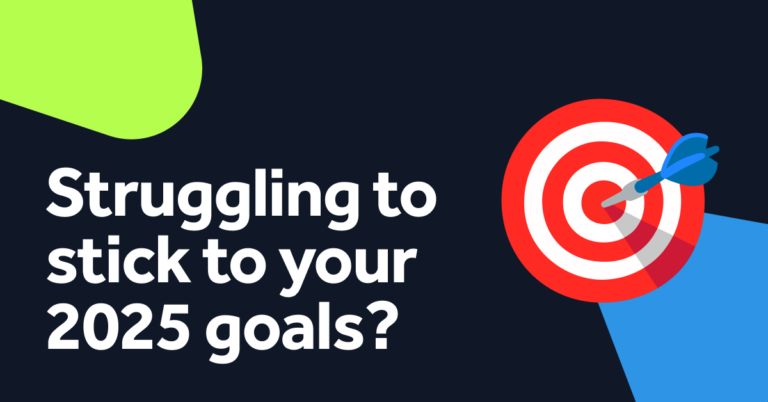We’re already well into the New Year, and by now you’ve surely made some sort of list as to what you want to accomplish in 2019. Heck, you already may be struggling with a few resolutions (keep going—we believe in you!). It goes without saying that almost everyone has some sort of goal, plan, or strategy they want to implement when it comes to money. Perhaps you want to save more so you can invest, or perhaps you want to figure out how to get out of debt completely. Or maybe you simply want to earn more—keep in mind that simply making more money won’t necessarily help you if you keep repeating the same harmful financial patterns and mistakes. Making a list of what not to do is just as important as what you want to accomplish in order to put yourself into a better financial situation. That said, we’ve compiled a list of the top five money mistakes you should avoid making in the New Year—take note and tread thoughtfully.

Not paying yourself first
Always—and we mean always— pay yourself first before putting money toward your bills. Now, paying yourself first may be a confusing term to some—it has to do more with saving money versus earning money. It doesn’t have to be a giant sum, but rather a percentage of your salary which you place into your investments before you do anything else. Treat your investments like you would a regular bill, but give them first priority. Just like regular bills, your retirement, investments, or other savings become something that you have to pay every month. After that, it will become second nature—you’ll find it’s easier for you to stick to your budget and you’ll have less capital available to make non-essential and emotional purchases. Over time, you’ll reap the benefits of compound interest and you’ll thank yourself at the end of the year.

Making the big purchases big
Big purchases are things like buying a house or a car. However, just because it’s considered a big purchase, doesn’t mean you need to make said big purchase, well, big. Big purchases should take a considerable amount of thought, planning, and consideration. You definitely don’t need to subscribe to the age-old adage of “go big or go home,” especially if you’re trying to make better financial decisions. Do you really need to take out finance to buy a 40k car, or would a 10k car give you the same satisfaction? Do you need to buy a house for an extra 100k just for an extra bedroom you’ll never use? Keep the big purchases relatively small will have a considerable impact on the amount of interest you pay over your lifetime. Not only that, but it will keep your non-discretionary expenditure (see below) low, so you have more capital available to use to invest.

Making high-risk investments when you don’t know what you’re doing
You’ve heard about the people that took out a mortgage to invest in Bitcoin…at its peak…right before the crash. Now, we’re not saying never take a risk, but educate yourselves, people. Always question then validate the hype, and stick to what you know. The same goes for more traditional methods, like investing directly into property abroad when you have absolutely no experience in this. Or investing in a p2p platform without doing your due diligence on the transparency and track-record of the company. We live in a digital world, and there is a plethora of information out there to help you learn more about the dos and don’ts of investing. That said, it’s easy to feel like you’re getting an information overload and can’t sift through information. If you’re unsure what to do, seek financial advice from a financial advisor—they’re there for a reason.

Confusing discretionary and non-discretionary expenditure
Is your €100 phone bill discretionary or non-discretionary? What about your monthly newest trend mini clothing spree? Or the lavish gifts for your significant other? Once you can honestly identify what expenditure is discretionary and non-discretionary, it’ll be much easier for you to create a budget and stick to it.
Ok, that’s done. But many of you may be thinking, “discretionary and non-discretionary expend… who now, what?” Let’s dial it back for a moment. Discretionary and non-discretionary expenditure (or spending) are terms used to describe categories of your expenses. Basically, it separates the necessary spending from the unnecessary spending. So rent, house payments, other bills—necessary, or “non-discretionary” expenditures. Vacations, your daily premium latte, and the newest tech gadget are considered frivolous, or unnecessary purchases—hence, discretionary expenditure. With finances, categories are important to designate otherwise lines can be blurry, and budgets can be hard to stick to. Speaking of budgets, that leads us to our final mistake which is…

Not having a budget
Whattt? No budget? Hate to break it to you, but it’s entirely too common. People either think they can keep track without getting granular with a budget, or they just think it’s too hard to follow. But perhaps the simplest and easiest mistake you can make is not having a budget. Without a budget, you have no way of tracking and planning for your expenditure. The good news is you don’t need to hire an accountant or have any fancy software—simply open an excel or Google sheet, create a column with your committed expenditure, another with your non-committed expenditure, and another with your total NET income. Then you can plan how much disposable income you have to play with each week. P.S. Don’t forget to include paying yourself first in this budget!
Our best advice on how to stick to your financial goals or plans is to keep them simple and straightforward (at least, in the beginning). If you build a plan with all sorts of detailed constraints and components, you may get overwhelmed and feel like the whole thing is unattainable. If you start simple, you’ll be able to follow it more easily and will gain more traction (and—subsequently—confidence) as you successfully progress. You can always check in with yourself after a few months and build upon your financial goals, plan, or budget by adding more details. Just remember to educate yourself, ask for help when you need it, and for goodness’ sake—pay yourself first!

Now that we’ve told you what not to do, we’d like to hear some of your tips and financial advice for 2019—what are some of your goals and must-dos? Let us know in the comments below.


